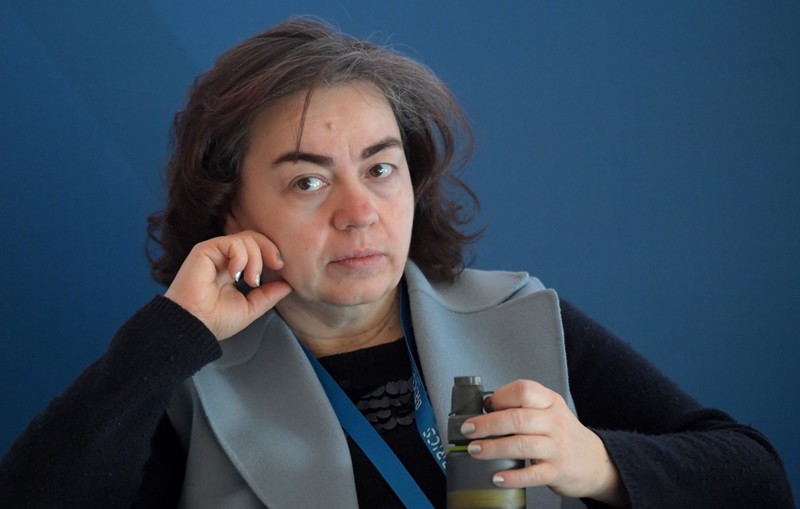Cooperation in Science, Technology and Innovation within BRICS / Irina Kuklina
Irina Kuklina - Executive Director of the International Center for Innovation in Science, Technology and Education, Head of Science, Technology and Innovation Work Group of the BRICS Russia Expert Council, Member of the BRICS Russia Expert Council

© Photohost agency brics-russia2020.ru
Over the last five years cooperation in science, technology and innovation (STI) within BRICS has been dynamically evolving and has reached new frontiers not least because of the leading role of the Russian Federation. Indeed, the collaboration of five countries in the area of science, technology and innovation can be considered as a driving force for cooperation within BRICS.
Successful implementation of the BRICS STI initiatives is carried out with consistent and effective fulfilment of the obligations set out in the following framework documents:
- Memorandum of Understanding on Cooperation in Science, Technology and Innovation (Brasilia, Brazil, March 18, 2015). The year 2020 marks the fifth anniversary of the document signing;
- Strategy for the BRICS Economic Partnership (Ufa, Russia, July 9, 2015), as well as paragraph 62 of the Ufa Declaration, adopted at the 7th BRICS summit (Ufa, Russia, July 9, 2015);
- Annual BRICS STI declarations pointing out the success achieved and outlining further development directions.
- On September 20, 2019, the city of Campinas, Brazil, hosted the 7th BRICS Science, Technology and Innovation Ministerial Meeting. The parties agreed on Campinas Declaration and BRICS STI calendar of activities 2019-2020;
- The BRICS Science, Technology and Innovation Work Plan 2019-2022.
Following the New BRICS Science, Technology and Innovation Architecture concept proposed by Brazil in 2019, the recently developed mechanism of STI administration and coordination of BRICS cooperation is based on four pillars of cooperation:
- Research Collaboration by STI Working Groups (WGs) on a wide range of the thematic areas such as astronomy, biotechnology and biomedicine, including human health and neuroscience, photonics, material science and nanotechnology, geospatial technologies and its application, prevention and monitoring of natural disasters, information and communication technologies (ICT) and high-performance computing systems, cooperation in the oceanic and polar research areas, solid-state lighting (SSL), new and renewable energy sources;
- Research Infrastructure (the BRICS Global Research Advanced Infrastructure Network, BRICS GRAIN);
- Innovation Collaboration (BRICS Action Plan for Innovation Cooperation 2017-2020, iBRICS Innovation Network, BRICS Centers for Technology Transfer);
- Sustainability (long-term cooperation) - holding BRICS Young Scientist Forum (YSF), Network of BRICS Academies of Science, and Technology Foresight and STI policy conferences.
In order to implement the initiatives of the New BRICS STI Architecture the Russian side developed and agreed with its BRICS partners on the mechanism of the BRICS STI Steering Committee intended to ensure proper management and coordination of BRICS STI activities.
On February 10-11, 2020, the Ministry of Science and Higher Education of the Russian Federation held the first meeting of the BRICS STI Steering Committee. The tasks of the Steering Committee include improving coordination of STI interaction, monitoring and estimating jointly implemented initiatives, informing the interested parties in time of STI activity within BRICS, updating the calendar of events and provision of information, analytical, organizational and technical support for the STI activities. In the nearest future, the BRICS STI cooperation web-platform will be developed to simplify the process of interaction between WGs and other forms of BRICS cooperation, to set up a single database of documents as well as to improve the general public awareness of BRICS STI cooperation.
Joint BRICS STI projects are effectively implemented via annual coordinated multilateral calls under the BRICS STI Framework Program (BRICS STI FP, Program). Among funding agencies of BRICS STI FP there are the Ministry of Science and Higher Education of the Russian Federation, Russian Foundation for Basic Research (RFBR), National Council of Brazil for Science and Technology Development, Brazil’s Innovation Agency, Department of Science and Technology of India, the Ministry of Science and Technology of China, National Natural Science Foundation of China, National Research Foundation and Technology Innovation Agency of South Africa.
The coordination of call initiatives to support basic and applied research projects is carried out by the BRICS STI Call Secretariat, represented by RFBR. To optimize the work and simplify the procedure of handing in joint applications the BRICS STI FP web portal, was developed by the BRICS STI Call Secretariat.
Read more in the source: Special issue of the International Affairs magazine devoted to the Russian BRICS Chairmanship in 2020


